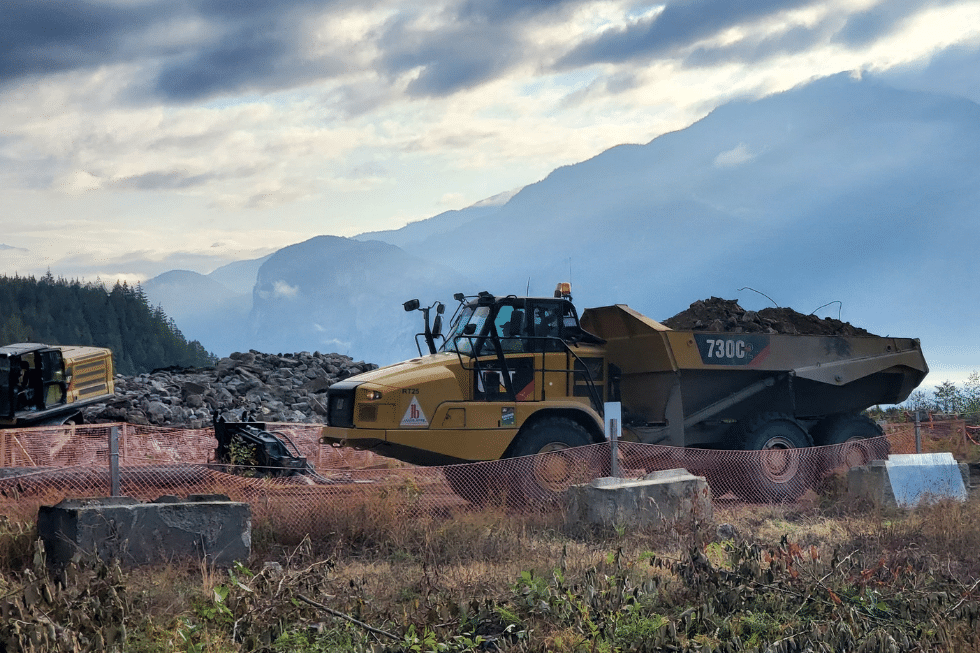The BC Ministry of Environment and Climate Change Strategy (BC ENV) issued Protocol 19 – Site Investigation and Reporting on February 1, 2023. The protocol specifies site investigation and reporting requirements related to relocation of non-waste soil.
The changes have impacted sites requiring soil excavation and removal and resulted in several unintended consequences. As a result, BC ENV has proposed the following changes to Protocol 19 based on feedback received:
- Applicability: clarifies that Protocol 19 only applies to soil sourced from sites with current or historical Schedule 2 commercial or industrial uses.
- Sample and Analysis Plan: adds a requirement to retain sample and analysis plans for 10 years.
- Potential Constituents of Concern: revisions that the scope of parameters analyzed can be narrowed down to only contaminants of concern that have been identified at a site if potential contaminants of concern (PCOCs) are not being detected as the sampling program progresses outside of areas of potential environmental concern (APECs).
- PAH and Metals: Removes mandatory requirement to analyze every soil sample for polycyclic aromatic hydrocarbons (PAH) and metals.
- Vapour Probe Placement: Adds clarity and flexibility in placement of vapour probes in soil stockpiles.
- Vapour Attenuation Factor: allows for the use of 0.02 vapour attenuation factor (VAF) when evaluating vapour quality for soil relocation.
- ML/ARD Sampling: allows for some flexibility regarding composite sampling of rock and sampling of weathered rock for metal leaching (ML) & acid rock drainage (ARD) assessment.
- ML/ARD Sampling Frequency: reduces ML/ARD sampling frequency to 3 samples per rock unit.
- ML/ARD Analysis: adds additional ML/ARD analyses including total sulfur, sulfate-sulfur, paste pH, total inorganic carbon (TIC), and x-ray diffraction (XRD) analysis.
BC ENV has also proposed the following scenarios where exemptions apply from following Protocol 19 requirements:
- Sites with Certification Documents: sites with numerical-based Certificates of Compliance (CofC) or Final Determinations that the Site is not contaminated will be exempted from Protocol 19.
- Soil Treatment Facilities: facilities that have similar soil characterization requirements in an authorization will be exempted from Protocol 19.
- Quarries: quarries with Schedule 2 uses will be exempted from Protocol 19, if they have a Mines Act Permit and the Schedule 2 use has not impacted the material leaving the site.
- Temporary Storage Sites: temporary storage sites with Schedule 2 uses will be exempted from Protocol 19, if the soil is stored in a manner that it is not impacted by Scheule 2 uses.
BC ENV is soliciting feedback on the proposed changes to the Protocol 19 requirements until this Friday, April 26, 2024. The Protocol is anticipated to be revised and released in mid-June 2024.
If you wish to participate in providing feedback and/or comment, there’s an option to provide input using three online comment forms.
- Protocol 19: Sections 1 to 5.3 (Applicability, Sampling Plans and Sample Collection)
- Protocol 19: Section 5.4 (Quarried Material)
- Protocol 19: New Section 5.5 (Exemptions from the Protocol)
***
Keystone Environmental can help you navigate these regulatory changes and help support your project needs. We can recognize issues, evaluate risks, and effectively apply professional judgement to support you in achieving your project objectives. Contact us for more information.
***
Summary written by: Ben Lin, P.Eng., CSAP, Senior Project Manager
Source & Related Links:
Site remediation news – Province of British Columbia (gov.bc.ca)

